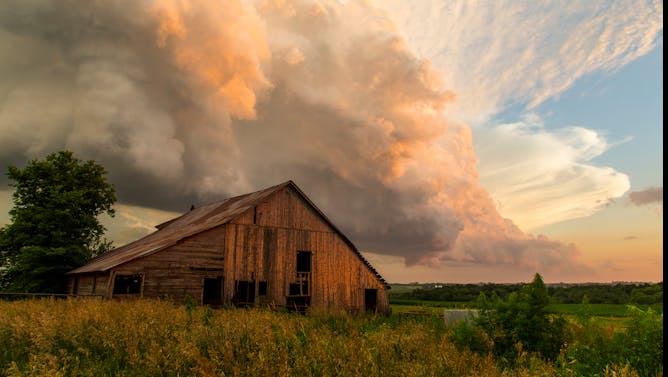|
|
|
|
Ten years on, I don’t spend a lot of time thinking about the Great Recession — and neither, I suspect, do most Americans.
But that might just be my urban bias showing. I was surprised to learn from Iowa State University’s David Swenson that the lion’s share of America’s economic recovery has been reserved for its metropolitan areas. In fact, between 2008 and 2017, these counties enjoyed shockingly close to 99% of all job and population growth.
Meanwhile, many rural corners of the country continue to struggle. Swenson paints a sad portrait of rural America’s present – and likely future – decline.
Today we also have articles on the ways coral reefs protect coastal areas from flooding, Ramadan, American-style and a new study on why living in the western part of a time zone could be hazardous.
And if you like our stories, we’d so appreciate you supporting us. We’re kicking off our May fundraising campaign today. If you believe in elevating and sharing the voice of experts, we hope you’ll donate $15 or $50 (or a monthly pledge of $10).
Thank you in advance for your generosity in sustaining our work.
|
Aviva Rutkin
Big Data + Applied Mathematics Editor
|

|
|
Top story
|

Sunset over an Iowa farm.
BJontzPhoto/shutterstock.com
David Swenson, Iowa State University
Since the Great Recession, most of the nation's rural counties have struggled to recover lost jobs and retain their people.
|
|
|
|
|
|
|
|
|
|
|
Science + Technology
|
-
Mattie Milner, Embry-Riddle Aeronautical University; Stephen Rice, Embry-Riddle Aeronautical University
How willing are people to accept medical care from a robot or an automated system? It depends on the procedure – and the price.
-
Julie Pollock, University of Richmond
The elements that make up each column of the periodic table share a set of common traits. Here, a chemist describes group 15 and the crucial role phosphorus, in particular, plays in cancer.
|
|
From our international editions
|
-
Lesley Ann Daniels, Institut Barcelona Estudis Internacionals
After a civil conflict, within five years the majority of modern peace agreements fail. What is causing these negotiated settlements to fall apart?
-
Amin Al-Habaibeh, Nottingham Trent University
The vast desert could potentially produce more than seven times the electricity requirements of Europe, with almost no carbon emissions.
-
Sue Lynn Lau, Western Sydney University; Ahmed Hussein, Western Sydney University
The holy month of Ramadan begins on Sunday night. This can present a challenge for Muslim people with type 2 diabetes who want to fast but can't necessarily do so safely.
|
|
|
|
| |
| |
|
|



